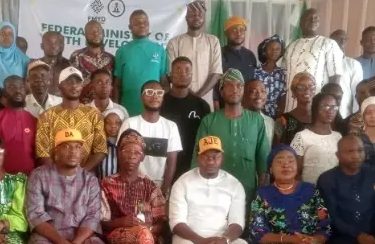By Biodun Esan, Ilorin
A media expert and consultant, Malam Tunde Mohammed has said that the
media is very essential to democracy because democratic elections are
impossible without the media.
Mohammed said this on Thursday in Ilorin in a paper; “Media role in an
an election year, a dialogue” presented at the three-day workshop for
candidates and campaign director-general.
The workshop, with the theme: “How to win elections”, organised by the
Nations Leadership Institute has in attendance candidates seeking
elective positions, director-general for candidates, and party
stalwarts.
Mohammed said that a free and fair election is not only about the
freedom to vote and the knowledge of how to cast a vote, but also
about a participatory process where voters engage in public debate and
have adequate information about parties, their political policies, and
agenda, candidates, and the election process itself to make informed
choices.
“First to be understood is the fact that the media provides a platform
for the political parties and candidates to communicate their message.
“The power of media also diminishes the importance of parties by
allowing candidates to appeal directly to voters.
“Again, both the voter and party do not form a political judgment in a
vacuum. The point here is that ‘voters and not the press decide the
election is more wrong than right,” he said.
Mohammed, a veteran journalist added that the people needed
information to make a decision, adding that in politics, a lot of that
information comes from the new media.
“The media also speeds the transmission of electoral results. It is
also used for electoral registration and improves public information
on the electoral process.
“The media is indispensable in informing and educating the voters.
There is a difference between educating and influencing voters, and
that is where the allegation of media bias comes from.
“So the media needs to explain the intricacies of the electoral
the process to the voters.
“The voters need the information to make educated decisions and it’s a
journalist’s job to give it to them.
“Furthermore, the media acts as a critical watchdog to democratic
elections, safeguarding the transparency of the process,
For instance, in political party primaries, preferences change as
information changes.
“Secondly, the mass media bestows prestige and enhance the authority
of individuals and groups by legitimizing their status,” Mohammed
said.
He added that it is incredibly the media that determines the political
agenda even in less technologically developed countries.
“Election constitutes a basic challenge to the media, putting its
impartiality and objectivity to the test.
“The task of the media, especially national media outlets is not, and
should not be to function as a mouthpiece for any government body or a
particular candidate.
“Its basic role is to enlighten and educate the public and act as a
a neutral objective platform for free debate of all points of view.
“It is, for this reason, that election observation teams for example,
routinely comment upon media access and coverage of elections as a
a criterion for judging whether elections are fair, he added.
According to him, the media also has an extremely significant impact
on the public’s views and ways of thinking.
“The media is the primary means through which public opinion is shaped
and manipulated.
“But the media on its own in an election need to maintain a high level
of professionalism, accuracy, and impartiality in the entire process.
“Therefore, the media plays a major role in making the democratic
process healthy and keeping the citizenry abreast with current events,
raising awareness on various political issues in an election year,”
Mohammed added.
Another resource person, Dr Adebola Bakare of the Department of
Political Science, University of Ilorin warned candidates seeking
elective positions to be mindful of their utterances and language
during their campaigns.
Bakare gave the warning in a paper delivered at a workshop on “How to
win elections” for candidates and director-generals of candidates.
Speaking on the topic: “Sensitisation and mobilisation to win an
election”, the political science lecturer said the personality of the
candidate matters a lot.
He advised candidates not to wait till the election period before they
start their campaigns.
Bakare added that candidates can employ door-to-door campaigns to
reach the electorate, adding that physical contact matters in an election
campaign.
“Social media platforms are viable tools but a majority of the voters
are not on the platforms, elites seldom vote,” he said.
Bakare added that candidates’ canvassers must focus their attention on
marketing their candidates, advising them not to de-market their
opponent because mentioning the name of the opponent in their campaign
amounted to an indirect campaign for the opponent.
END





